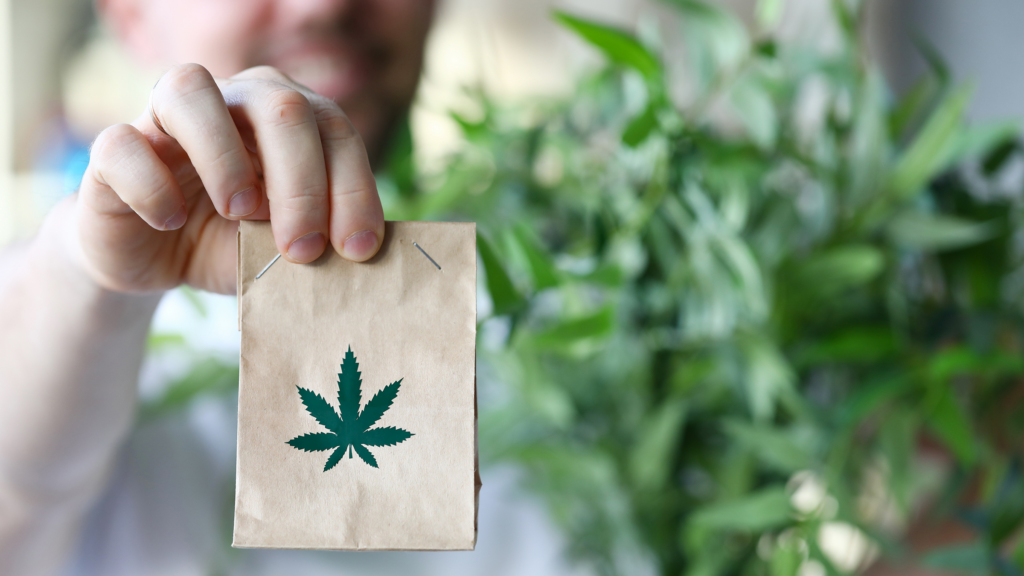In recent years, the debate surrounding the legalization of recreational marijuana has taken center stage, igniting discussions about its potential as a relaxation aid and its potential to lead to addiction.
As societal attitudes evolve and legal barriers shift, it’s essential to explore the nuanced effects of recreational marijuana.
This article delves into the multifaceted aspects of its use, examining whether it truly offers relaxation benefits or poses a risk of addiction.
Defining Recreational Marijuana

Recreational marijuana is the use of cannabis for non-medical purposes, with the primary goal of experiencing relaxation and euphoria.
Unlike medical marijuana, which is prescribed to alleviate specific health conditions, recreational use is centered around personal enjoyment and leisure.
The allure of recreational marijuana lies in its ability to provide a temporary escape from the pressures of modern life, allowing individuals to unwind and momentarily disconnect from their worries.
The Relaxation Benefits
Easing Stress and Anxiety
A significant draw for recreational marijuana users is its potential to alleviate stress and anxiety.
The cannabinoids present in cannabis, such as THC (tetrahydrocannabinol) and CBD (cannabidiol), interact with the body’s endocannabinoid system, which may lead to a sense of relaxation and reduced anxiety levels.
This natural mechanism can offer temporary relief, allowing individuals to unwind and escape from the pressures of daily life.
However, it’s important to note that while cannabis may provide short-term relief, it should not be used as a sole coping mechanism for chronic stress or anxiety.
For those interested in exploring the world of recreational marijuana, online dispensaries in Canada offer a convenient and legal way to access various cannabis products.
As always, it’s important to approach such choices with caution, respect for the law, and awareness of personal well-being.
Enhancing Sensorial Experiences
Recreational marijuana has been reported to heighten sensory perceptions, intensifying experiences such as listening to music, enjoying art, or savoring food.
This unique aspect of cannabis can lead to a more immersive and enjoyable engagement with various activities. Colors may appear more vibrant, sounds more resonant, and flavors more nuanced.
This sensory enhancement can contribute to a greater appreciation of the present moment and the world around us.
Creativity and Relaxation
For some individuals, recreational marijuana has been associated with increased creativity and enhanced problem-solving abilities.
Many users report that cannabis can help them think outside the box and approach challenges from fresh perspectives.
This intersection between relaxation and creativity has led some artists and writers to incorporate recreational marijuana into their creative processes.
However, it’s essential to recognize that the effects of cannabis on creativity can vary widely among individuals, and excessive use may hinder cognitive function.
The Risk of Addiction

The Slippery Slope
While the relaxation benefits of recreational marijuana are evident, it’s essential to acknowledge the potential for addiction.
The euphoric effects induced by cannabis can pave the way for psychological dependence, where individuals rely on the substance to cope with emotions and stress.
This dependence can gradually evolve, leading to increased consumption and potential difficulty in quitting. It’s crucial to be mindful of usage patterns and to seek support if cannabis use starts to interfere with daily life or responsibilities.
Gateway Hypothesis
The “gateway hypothesis” is a subject of ongoing debate. Some researchers propose that using recreational marijuana might act as a gateway to experimenting with more potent and addictive substances, potentially leading to addiction.
While this hypothesis has garnered attention, the progression from marijuana use to other substances is not a linear or guaranteed path for everyone.
Factors such as genetics, environment, and personal choices play a significant role in an individual’s susceptibility to substance abuse.
Finding the Balance
Responsible Use Guidelines
To harness the potential relaxation benefits of recreational marijuana without falling into the trap of addiction, adhering to responsible use guidelines is crucial.
Setting clear limits, avoiding daily consumption, and prioritizing mental well-being are effective strategies in achieving a balanced approach.
Additionally, considering the potency of different strains and being aware of individual tolerance levels can contribute to a safer experience.
It’s important to remember that moderation and self-awareness are key when exploring the use of recreational marijuana.
Exploring Alternatives
For individuals wary of the potential risks associated with recreational marijuana, exploring alternative relaxation techniques is a viable option.
Practices such as meditation, exercise, deep breathing, and engaging in hobbies can provide similar benefits without the potential drawbacks of substance use. These alternatives not only promote relaxation but also contribute to overall well-being and personal growth.
Conclusion
The intersection of recreational marijuana as a relaxation aid and a potential pathway to addiction is complex. While it can undoubtedly offer moments of respite and enhance social interactions, the risk of dependency and progression to more harmful substances cannot be ignored.
Striking a balance between responsible usage and understanding the potential consequences is pivotal in navigating this intricate terrain.
Whether one chooses to explore recreational marijuana or seeks relaxation through alternative means, informed decisions are essential.

Jean Smith is a fitness enthusiast and blogger who focuses on fitness and a healthy lifestyle. She is passionate about assisting people in living healthier lifestyles and is constantly on the lookout for new and creative methods to stay fit and healthy. Her articles are excellent resources for anyone interested in improving their health and fitness.
